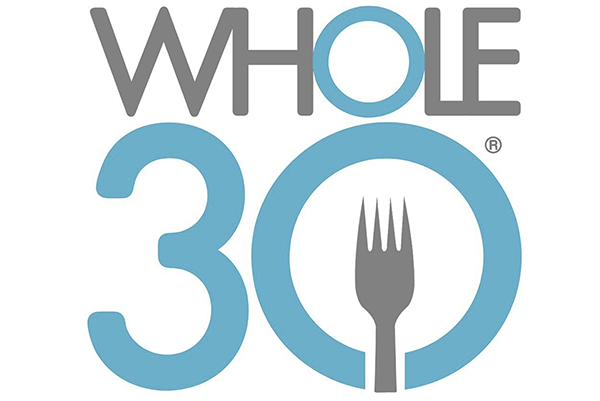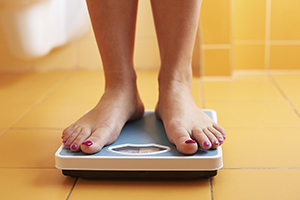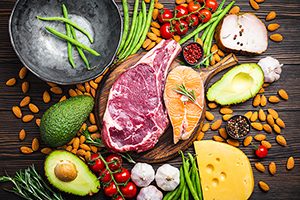
After two and a half years of the Whole30Diet, I’d like to share my personal impressions with you. I’ve already written extensively about the diet here and here. You can also listen to a podcast where I discuss it.
My experience with the Whole30 was overall very positive. After the first few days when I noticed my workouts were a little sluggish, my metabolism flipped a switch and my performance has been off-the-hook.
One of the reasons I started the Whole30 was to address some lethargy and injury-susceptibility I was experiencing a couple of years ago. For a while, I had to forego running completely to nurse a sore SI joint. Within months of adhering to a Paleo Diet, my soreness abated allowing me to resume my triathlon training. I can’t for a moment believe this was coincidental.
Since I was already eating pretty cleanly to begin with, I might not have garnered as profound a benefit as some Whole30 initiates whose diets were very sugar- and junk-laden, but I did notice significant improvements in my concentration and productivity. I also found it easy to master my cravings for sweet desserts and alcohol. That frantic post-meal search for something sweet was gone, replaced by “desserts” of some almonds, cashews or pistachios, a couple of squares of 95% dark chocolate (officially verboten on the initiation phase of Whole30), and some decaf, occasionally with coconut cream.
I was reminded of how quickly sweet craving can be rekindled the other night when I had dinner with some (non-Paleo) friends. We’d had a very substantial Whole30-compliant restaurant meal, and I was about to order my decaf when the dessert menu suddenly materialized. I demurred, but my friends each ordered what could only be described as a giant ice cream-filled crepe smothered in chocolate syrup. They offered me a taste, and I wish I could tell you that I found it cloyingly sweet, but no! It was ambrosia, and despite being totally full and satiated from my ample dinner, I eyed their plates hungrily in hopes that they would leave me a morsel. Alas, not. But it reminded me that the human drive for rich, sweet food is insatiable—there’s always room for dessert, whether you need it or not!
Hunger took on a different quality on the Diet. You eat, feel full for hours, stop thinking about food, and then—Whammo! You feel hollow, and you know it’s time to refuel. Snacks are rarely necessary. As a result of eating less volume, you seldom feel bored by real, wholesome foods.
In fact, your taste buds wake up to a whole spectrum of tastes that were blunted by hi-test flavor ingredients. When you stop eating sugar, your battered taste buds revive, and even tomatoes, grilled peppers and onions, pumpkin, parsnips and unsweetened coconut taste satisfyingly sweet.
As a result of eliminating “quick-fix” foods like “healthy” chips, gluten-free baked goods, popcorn, and peanut butter, you open up room to experiment with more nutrient-dense carb alternatives like baked squash, turnips, and cauliflower.
I was not deliberately trying to lose weight, but at the end of 30 days, I jumped on the scale and found myself 4 pounds lighter. After 2 1/2 years I’ve equilibrated with a weight loss around 10 pounds, resulting in a lot of pants alterations. Not sure how I ever fit into size 33 or even 34 slacks!
One of the biggest challenges was alcohol, not that I had a drinking problem, but I was in the habit of having a small cocktail some nights after “a hard day at the office” or drinking wine or single-malt whiskey at parties or on weekends (beer makes me sneeze if I drink too much).
I can count on two hands the number of drinks I’ve had this year. When I come home, instead of reaching into the liquor cabinet for a circuit-breaker, I’ll relax with some yoga stretches. At most parties and dinners, I’m happy to watch others drink, but not averse to tasting a little. I’ve noticed my sleep quality is better when I don’t drink.
Where I now depart from the “rules” of orthodox Whole30 is by using some grass-fed butter instead of ghee; I’ve reintroduced chocolate, although I’ve cultivated a palate for high-test 92 or 95% cocoa products; rarely, I’ll have some dairy products, like a dash of yogurt or some Parmesan cheese as a garnish; if I feel like having some hummus or some lentils (legumes are banished from the Whole30) I’ll indulge. In summer, when the corn ears are succulent, I’ll have some corn-on-the-cob (technically a grain). And if someone raves about the bread in a restaurant, I’ll give it a taste (I don’t have celiac disease). I find these “cheats” keep me from becoming too grimly perfectionistic about food.
For perspective, I visited a Facebook page where folks weighed in with their impressions of the Whole30. While I saw mostly raves, I did see a few comments like these:
“Coconut milk in my coffee just doesn’t taste the same as real milk…”
“My Whole30 ranch dressing came out lumpy—I can’t eat salad without genuine ranch dressing!”
“What can I substitute for real ketchup on my hamburgers?”
“What can I eat for breakfast (those frittatas are too bland)?”
“It’s Day 2 and I feel terrible… what can I do to ease my withdrawal?”
To these complainers, I say: BWAWAHWAH! You don’t get it!!
The Whole30, like most challenges worth undertaking in life, is not a cinch, and requires some discipline, resolve, and yes, deprivation. So, suck it up, and take the plunge!
Here are some additional genuine comments from people in my personal circle who got interested in trying the diet after my example:
“As I turn 50 later this year, I realize I’ve been on and off diets, battling weight, for at least 40 years. It’s a constant struggle. It feels like I’ve tried every diet ever published. I’ve also tried just ‘common sense’ portion control, and limiting or eliminating certain foods. I’ve tried to cut out added sugar more times than I can count. Same for processed wheat and dairy at various different times. After just a few days, the cravings become unbearable; the physical compulsion to gorge on these foods is overwhelming.
But despite 40 years of diet failure I decided to try the Whole30 at the beginning of this year. To my huge surprise, I found that when eliminating added sugar, grains and dairy at the same time (plus legumes and alcohol as directed on the Whole30), the cravings were actually manageable. For the first time ever, I’ve been able to eliminate these evil ingredients, move through the cravings because they were far less severe, and come out the other side no longer needing any of it.
As I write this I’m currently on day 20. I had to consult a calendar to figure that out because I actually stopped counting the days a week or so ago. I don’t intend to stop at day 30. This is my new lifestyle. For the first time in my life, I can actually consciously control what I eat. It’s the most liberating thing ever. Of course I miss sugar, wheat and dairy products, but I don’t crave them; I don’t have an overwhelming physical compulsion to consume them.
And I’m elated by the physical effects. I’m down two belt holes. I’m satisfied with less food overall. My grocery bills have actually gone down; I guess the more nutrient dense your foods, the less you need. My energy level is way up. My emotional outlook is greatly improved. Heartburn and several other digestive issues have totally cleared up. Minor aches and pains are totally gone. For the first time in my life I feel the way I’ve always imagined “normal” people feel.
I don’t mean to sound like an infomercial for the Whole30, but what it’s done for me is truly transformational.”
“The Whole30 is life-altering because it changes your biochemistry. And when you change your biochemistry you change your brain chemistry. Gone is the tug-of-war and ‘negotiating’ with self. The need for will power is gone because you literally do not crave what you should not have.
Food choices are plentiful but finite. There is no wiggle-room.
30 days is not forever and the few times when you sort of/kind of would like to step out of the program, all you have to tell yourself is ‘make it to bedtime and then the day is over.’ 100% guarantee, in the morning you will not be missing whatever you thought you might like to eat the day before, and you’ll feel better for it.
Your tastebuds become more sensitive, so you truly taste the natural flavors in real food.
Your energy increases so that you are busy accomplishing things instead of thinking of and planning what processed junk food you are going to indulge in next.
(Helpful, if possible, to have support at home and work)”
“I have not fully embraced the Whole30 but I have cooked their recipes and they are great! I do find it difficult to eat out since most restaurants use butter and other oils to cook their food in. I have not felt any profound changes in my body because of motherhood (i.e. waking up in the middle of the night) so I am still tired, but less so.
I have reduced my dairy intake and find that I do not crave it as much. The only dairy I eat is milk in my coffee; I need a jolt in the morning so I can survive the rest of the day. My sugar craving has reduced; I used to want to eat an entire cake after a meal, now I am down to eating something sweet every once in a while during the week.
My alcohol craving has also reduced. I only drink one glass of wine to relax and it satisfies me. Before the Whole30, I would always drink more than one glass.”
You can see from the above that there’s a spectrum of responses to the Whole30, from raves to merely qualified praise; I would personally rate it an A-minus. Is it right for you? Give it 30 days (about 1/1000th of your lifetime!) and see – and let me know how it goes!







